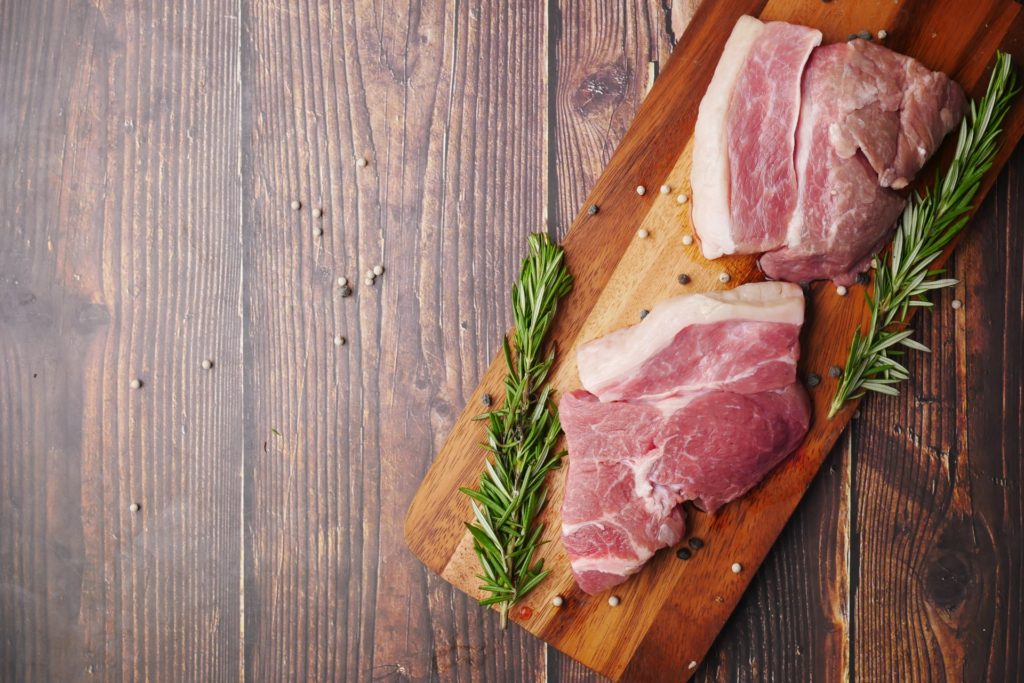Environmental organisation Greenpeace has begun a campaign to combat what it says are misleading claims made by the meat marketing industry, which it claims are reminiscent of the marketing techniques used in the past by the tobacco industry.
Greenpeace has identified seven ‘myths’ perpetrated by the meat lobby, including a claim that eating meat can make men more masculine, and that serving meat to the family is a sign of a good mother.
The campaign, spearheaded by Greenpeace Denmark, argues that the meat industry is spending ever larger sums of money on marketing meat, even as the population is increasingly becoming more vegetarian, vegan and flexitarian.
The group’s report, Dissected, the 7 myths of Big Meat’s marketing, accuses the meat marketing industry of stealing a page from the cigarette industry’s playbook, by retailing seven myths to enhance the public’s view of meat, even in the face of growing public concern over the health aspect of meat consumption.
To do that, Greenpeace engaged the services of a group of semioticians – experts in the use of signs including language to communicate meaning, not always openly. They came up with seven main myths used by meat marketers.
• Myth 1: ‘Meat is part of the climate solution, not the problem’
• Myth 2: ‘Meat is good for you’
• Myth 3: ‘Eating (red) meat makes you more of a man’
• Myth 4: ‘Good women prepare and serve meat to their family’
• Myth 5: ‘Eating meat is a patriotic act’
• Myth 6: ‘Eating meat brings people together’ and
• Myth 7: ‘Eating meat is about freedom and choice’
One by one, the report takes on each of those propositions, with a view to demonstrating how its claims are not true.
“The narrative of man as the hunter lives on, despite the fact that the hunting in question primarily takes place in the supermarket,” Greenpeace argues. And the organisation calls for strict controls on meat advertising, along the lines of the limits placed on advertising for alcohol and tobacco products.
"Isn't it time to impose advertising rules for the good of the entire planet, and introduce similar restrictions on meat marketing?" Greenpeace asks.
The answer, according to the meat industry.
“To equate meat advertising with tobacco advertising is more than a bridge too far and can even be called objectionable,” said Michael Gore, CEO of Febev, the Federation of Belgian Meat. “Unfortunately, Greenpeace is misleading the public by making associations that are simply not correct."
And that standpoint is backed by the Flemish centre for agricultural marketing Vlam. “It is a bit much for Greenpeace to equate cigarettes and meat,” said spokesperson Liliane Driesen. “Meat has a place in a balanced diet, there is scientific consensus on this. Cigarettes are a whole different story.”
Former advertising executive Alex Bogusky – he describes himself as a “recovering ad guy” – wrote the preface to the Greenpeace report. In it, he makes the direct comparison with the PR strategy of the tobacco industry when faced with restrictions.
“When production of meat is up and quality is down you need tried and true PR strategies. Strategies that are right out of the tobacco industry playbook,” he writes.
“Appeal to free choice. Align with national pride. Promise social connection. Play on masculine ideals. Even as young people reduce their meat intake, embrace a plant based diet, or even become vegan, overall meat consumption in Europe is still rising. It is time to dismantle the meat industry’s propaganda machine and introduce advertising restrictions and regulations for the meat industry in line with other categories like tobacco, junk food and alcohol.”

